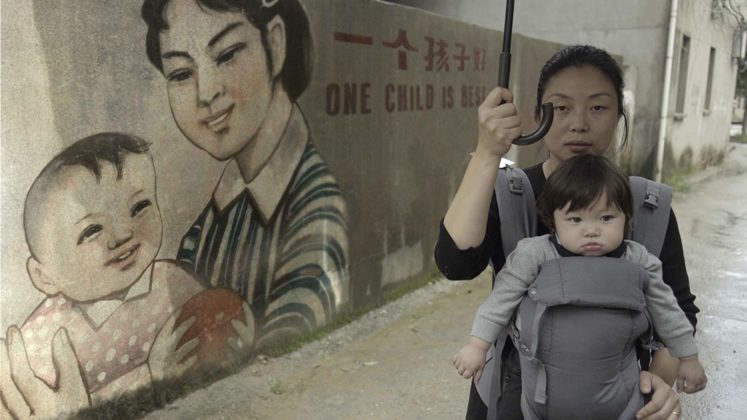In most countries, Nanfu Wang’s upbringing would have been typical. In China, she was afraid merely having a younger brother would spark an outrage.
The 34-year-old filmmaker was born under the country’s one-child policy, which prevented most families from birthing multiple children as an extreme method of population control. The policy lasted for almost three decades before being modified in 2015.
Wang’s family was granted an exception to have a second child because they lived in a rural area, their first child was a daughter, and the children were born more than five years apart.
“I believed when I grew up that families with one child were normal families, and that my family broke the law,” Wang said by phone. “We did something wrong, and I always felt a sense of shame.”
Wang turned her personal experiences into an autobiographical documentary with One Child Nation, an eye-opening expose of the lingering social consequences of the policy.
“When I became pregnant with my first child, I started having a lot of questions about motherhood,” Wang said. “It made me realize how little I knew about the policy growing up. Because I was a child, a lot of things I was taught never allowed me to question the messages that were told to me.”
Through her own story, Wang recalls the barbaric efforts at government enforcement and the horrific effects on families — children being abandoned, sent to orphanages, sold to human traffickers, or otherwise ostracized while their helpless parents were aggressively force-fed propaganda.
Wang spoke to a variety of subjects, such as her own family members whose views about the policy varied, to the midwife who delivered her and remains haunted by her memories, to state-funded abortionists, to traffickers who profited from “unwanted” children by shipping them overseas. Some were reluctant to talk on camera, while others found the experience cathartic.
“We wanted to explore what made people commit such atrocities,” Wang said. “One person led us to another person. The making of the film was a genuine discovery of what we didn’t know and didn’t question when we lived in China.”
During the guerilla-style production, Wang took precautions to avoid attracting the attention of the government, since she feared arrest or otherwise being forced to shut down filming. She and co-director Jialing Zhang didn’t use public transportation, film in public locations, stay in hotels, or do anything else that would expose their identities.
She learned some of those lessons while making her grassroots debut film, Hooligan Sparrow, another government expose about a human rights activist whose investigation of a suspected rape by a school principal led to harassment, surveillance, and imprisonment.
“I was afraid that if I didn’t tell this story, it would be forever lost,” she said. “History has always been written by the authorities. A lot of young people have never heard of the Cultural Revolution or the Tiananmen Square protests. We were afraid that the same thing would be true of the one-child policy. In 50 years, all they remembered would be what the government wanted them to remember. That gave us a sense of urgency.”
These days, Wang lives in the United States with her husband and young son. Although the new Chinese policy has been expanded to allow two children per family, the filmmaker fears that not much else has changed in her homeland.
“It’s still the government having control over women’s reproductive rights,” Wang said. “I do not think that this is better than the one-child policy, simply because they’re allowed to have one more. It’s nowhere near the true freedom that women should have, and the control they should have over their bodies.”





